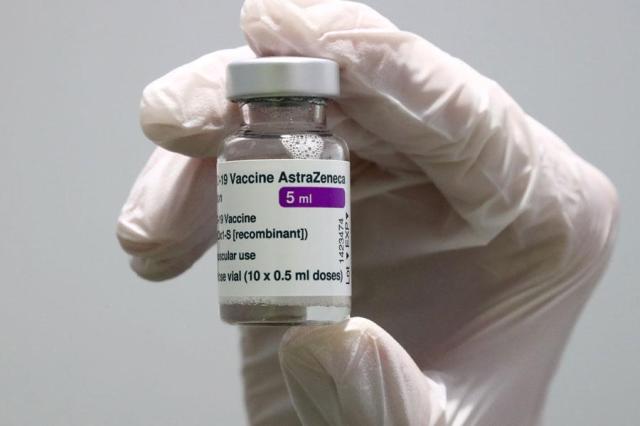
SEOUL, May 10 (AJU PRESS) - The Oxford-AstraZeneca vaccine was a critical part of the COVID-19 pandemic response. However, on May 7, 2024, the European Commission announced the vaccine is no longer authorized for use.
This EU announcement was preceded by an application from AstraZeneca on March 27, 2024 to withdraw the EU marketing authorization. This development has been covered in various media outlets as primarily related to the known "adverse events," namely a very small risk of blood clots. However, other factors are far more likely to be driving this decision.
The first AstraZeneca vaccine dose, outside of clinical trials, was administered on Jan. 4, 2021. In that year, about 2.5 billion doses were administered, and an estimated 6.3 million lives saved. It was a key product at the peak of the pandemic. This includes during the emergence of the delta variant in India, across the first half of 2021 where, amid significant global supply issues, the AstraZeneca vaccine was one of the few tools available during that humanitarian crisis.
This COVID vaccine, like those from Pfizer, Moderna, Novavax and others, went through the appropriate levels of testing. The phase 3 trials (where the vaccine is tested on thousands of people) showed the AstraZeneca product was safe and effective. It was distributed in many countries in Europe in early 2021, including the U.K.
The potential adverse events related to blood clots were publicly reported in February 2021, with, for example, the U.K. government and the drugs regulator (the MHRA) then publishing a statement about its continued use on March 18, 2021.
Amid speculation and investigation, the European Medicines Agency and the World Health Organization both highlighted how the benefits of the vaccine greatly outweighed any possible risks. This was a time when COVID levels were extremely high, and getting higher, with around 4 million confirmed new cases globally per week.
It is well established that COVID itself caused a significantly increased risk of these related blood clots and also thrombocytopenia (low platelet count). An August 2021, analysis of 30 million vaccinated people in the U.K. showed that the risks of thrombocytopenic events were much higher following a COVID infection, compared with any COVID-related vaccine.
From that study, the British Heart Foundation describe how for every 10 million people who are vaccinated with AstraZeneca, there are 66 extra cases of blood clots in the veins and seven extra cases of a rare type of blood clot in the brain. By comparisons, infection with COVID is estimated to cause 12,614 extra cases of blood clots in the veins and 20 cases of rare blood clots in the brain.
To put this into some perspective, these vaccine-associated blood clot rates are much lower than many widely prescribed medicines. For example, the combined contraception pill, prescribed widely to women, has blood clot-related risks of around one in 1,000. With women taking postmenopausal hormone therapy, around one in 300 per year are likely to develop a blood clot.
Poor public profile
The AstraZeneca vaccine did suffer from a poor public profile, arguably much of it undeserved. There was some poor quality reporting in Germany in January 2021, with claims that the vaccine was only "8-percent effective in the elderly." This claim was widely repeated, but it turns out that 8-percent figure referred to the percentage of people aged over 65 years in the study and not the efficacy measure.
The antivaccine lobby had a field day with fueling the "infodemic," including other false claims such as fabricated links between the vaccine and female infertility. As with the blood clots, COVID infection is known to increase the risks of infertility, but there is no link between infertility and the vaccine.
For individuals and families likely to have been injured by any medicine, including any of the COVID vaccines, compensation schemes are available. Many claimants report difficulties and frustrations with accessing the compensation. This is an area where the government-led schemes should be more transparent, and also where the misinformation from the anti-vaccine lobby hinders those groups they are claiming to support.
So, why would AstraZeneca withdraw this high-profile product? One reason for the withdrawal is likely to be that other COVID vaccines, such as Pfizer and Moderna, are essentially better products.
AstraZeneca is very good, but the mRNA versions have better effectiveness and safety levels. The initial concerns around the difficulties of the specialist refrigeration needed to transport and store the Pfizer and Moderna vaccines have been overcome, including in low-income countries. The mRNA vaccines are also easier to update when new variants emerge.
With those factors, orders for the AstraZeneca vaccine are probably much lower now than they were in previous years. It is being overlooked in favor of better-performing vaccines.
For the Oxford AstraZeneca vaccine, perhaps its time has indeed passed. But it has been a safe and effective vaccine and a key part of the pandemic response for most countries around the world.
-------------------------------------------------------------------------------------------------------------------------
Michael Head is a senior research fellow in Global Health at University of Southampton in the U.K.
This article was republished under a Creative Commons license with The Conversation. The views and opinions in this article are solely those of the author.
https://theconversation.com/astrazenecas-covid-vaccine-withdrawn-right-to-the-end-it-was-the-victim-of-misinformation-229653
Copyright ⓒ Aju Press All rights reserved.




